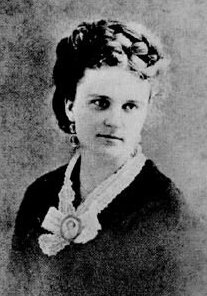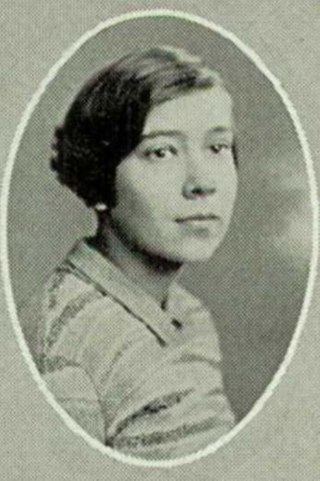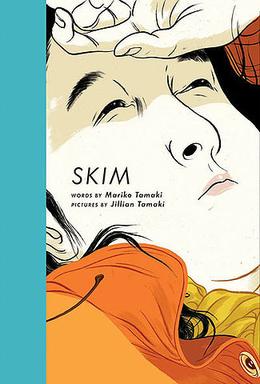
Kate Chopin was an American author of short stories and novels based in Louisiana. She is considered by scholars to have been a forerunner of American 20th-century feminist authors of Southern or Catholic background, such as Zelda Fitzgerald, and she is among the most frequently read and recognized writers of Louisiana Creole heritage. She is best known today for her 1899 novel The Awakening.

The Awakening is a novel by Kate Chopin, first published on 22 April 1899. Set in New Orleans and on the Louisiana Gulf coast at the end of the 19th century, the plot centers on Edna Pontellier and her struggle between her increasingly unorthodox views on femininity and motherhood with the prevailing social attitudes of the turn-of-the-century American South. It is one of the earlier American novels that focuses on women's issues utilizing narrative techniques. It is also widely seen as a landmark work of early feminism, generating a mixed reaction from contemporary readers and critics.

Heather Has Two Mommies is a children's book written by Lesléa Newman with illustrations by Diana Souza. First published in 1989, it was one of the first pieces of LGBTQ+ children's literature to garner broad attention.

Mädchen in Uniform is a 1931 German romantic drama film based on the play Gestern und heute by Christa Winsloe and directed by Leontine Sagan with artistic direction from Carl Froelich, who also funded the film. Winsloe also wrote the screenplay and was on the set during filming. Due to the film's overt and openly lesbian themes, the film remains an international cult classic and enjoys widespread acclaim from critics.

Mildred Dorothy Dunnock was an American stage and screen actress. She was nominated twice for an Academy Award for her works in Death of a Salesman (1951) and Baby Doll (1956).

The Innocents is a 1961 gothic psychological horror film directed and produced by Jack Clayton, and starring Deborah Kerr, Michael Redgrave, and Megs Jenkins. Based on the 1898 novella The Turn of the Screw by the American novelist Henry James, the screenplay was adapted by William Archibald and Truman Capote, who used Archibald's own 1950 stage play—also titled The Innocents—as a primary source text. Its plot follows a governess who watches over two children and comes to fear that their large estate is haunted by ghosts and that the children are being possessed.
"The Story of an Hour" is a short story written by Kate Chopin on April 19, 1894. It was originally published in Vogue on December 6, 1894, as "The Dream of an Hour". It was later reprinted in St. Louis Life on January 5, 1895, as "The Story of an Hour".

Valerie Taylor was an American author of books published in the lesbian pulp fiction genre, as well as poetry and novels after the "golden age" of lesbian pulp fiction. She also published as Nacella Young, Francine Davenport, and Velma Tate. Her publishers included Naiad Press, Banned Books, Universal, Gold Medal Books, Womanpress, Ace and Midwood-Tower.

Prince Charming is a 2001 television film. It is a comical fairy tale, relating the story of a prince who is cursed and transported to present-day New York City. The film stars Martin Short as a wizard squire of modest talents trying to keep his prince from harm, with Christina Applegate as a young woman skeptical of the prince's story, who nevertheless wins his love, and Bernadette Peters as an actress who inadvertently lifts a 500-year curse.

Haunted is a 1995 horror film directed by veteran director Lewis Gilbert and starring Aidan Quinn, Kate Beckinsale, Anthony Andrews, Victoria Shalet and John Gielgud. It is based on a 1988 novel of the same name by James Herbert, but makes significant changes to the original story. The film was produced by Andrews and Gilbert.

Lesbian literature is a subgenre of literature addressing lesbian themes. It includes poetry, plays, fiction addressing lesbian characters, and non-fiction about lesbian-interest topics. A similar term is sapphic literature, encompassing works that feature love between women that are not necessarily lesbian.
"Désirée's Baby" is an 1893 short story by the American writer Kate Chopin. It is about multi ethnic relationships in Creole Louisiana during the antebellum period.

Nitrate Kisses is a 1992 experimental documentary film directed by Barbara Hammer. According to Hammer, it is an exploration of the repression and marginalization of LGBT people since the First World War. To celebrate the 30th anniversary of the Teddy Awards, the film was selected to be shown at the 66th Berlin International Film Festival in February 2016.

Skim is a Canadian graphic novel written by Mariko Tamaki and drawn by Jillian Tamaki. Set in 1993, in a Toronto Catholic girls high school, it is about an outsider girl called Skim.

Jillian Tamaki is a Canadian American illustrator and comic artist known for her work in The New York Times and The New Yorker in addition to the graphic novels Boundless, as well as Skim, This One Summer and Roaming written by her cousin Mariko Tamaki.

Mariko Tamaki is a Canadian artist and writer. She is known for her graphic novels Skim, Emiko Superstar, and This One Summer, and for several prose works of fiction and non-fiction. In 2016 she began writing for both Marvel and DC Comics. She has twice been named a runner-up for the Michael L. Printz Award.

Compulsory heterosexuality, often shortened to comphet, is the theory that heterosexuality is assumed and enforced upon people by a patriarchal, allonormative, and heteronormative society. The term was popularized by Adrienne Rich in her 1980 essay titled "Compulsory Heterosexuality and Lesbian Existence". According to Rich, social science and literature perpetuate the societal belief that women in every culture are believed to have an innate preference for romantic and sexual relationships with men. She argues that women's sexuality towards men is not always natural but is societally ingrained and scripted into women. Comphet describes the belief that society is overwhelmingly heterosexual and delegitimizes queer identities. As a result, it perpetuates homophobia and legal inequity for the LGBTQ+ community.

"A Pair of Silk Stockings" is an 1897 short story written by Kate Chopin. The story follows Mrs. Sommers who prefers spending a windfall on herself, rather than on her children.
Town Bloody Hall is a 1979 documentary film of a panel debate between feminist advocates and activist Norman Mailer. Filmed on April 30, 1971, in The Town Hall in New York City. Town Bloody Hall features a panel of feminist advocates for the women's liberation movement and Norman Mailer, author of The Prisoner of Sex (1971). Chris Hegedus and D. A. Pennebaker produced the film, which stars Jacqueline Ceballos, Germaine Greer, Jill Johnston, Diana Trilling, and Norman Mailer. The footage of the panel was recorded and released as a documentary in 1979. Produced by Shirley Broughton, the event was originally filmed by Pennebaker. The footage was then filed and rendered unusable. Hegedus met Pennebaker a few years later, and the two edited the final version of the film for its release in 1979. Pennebaker described his filming style as one that exists without labels, in order to let the viewer come to a conclusion about the material, which inspired the nature of the Town Bloody Hall documentary. The recording of the debate was intended to ensure the unbiased documentation, allowing it to become a concrete moment in feminist history.

When Megan Went Away is a 1979 children's picture book written by Jane Severance and illustrated by Tea Schook. It is the first picture book to include any LGBT characters, and specifically the first to feature lesbian characters, a distinction sometimes erroneously bestowed upon Lesléa Newman's Heather Has Two Mommies (1989). The book, published by the independent press Lollipop Power, depicts a child named Shannon dealing with the separation of her mother and her mother's partner, Megan.















